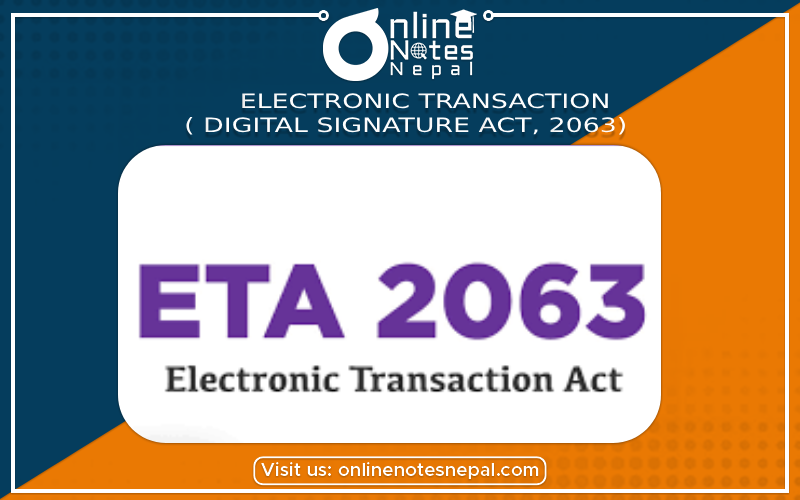Published by: Anu Poudeli
Published date: 08 Aug 2023

The Electronic Transaction Act, 2063 (2008 AD) is a Nepalese law that recognizes electronic transactions, papers, and signatures as having legal validity and enforcement. It establishes criteria for the use of digital signatures and provides a framework for doing various tasks electronically.
The following are possible key digital signature provisions in the Act:
1.Digital Signature : The Act is anticipated to define a digital signature as an electronic signature in the form of a unique code or algorithm used to validate the identity of the sender of an electronic document or message.
2.Legal Recognition: Under the Act, digital signatures will be legally recognized as equivalent to handwritten signatures in many situations, making digitally signed documents legally valid and enforceable.
3.Certification Authorities (CAs): The Act may establish and regulate Certification Authorities (CAs). CAs are trusted entities that issue digital certificates that are used to validate digital signatures. CAs' qualifications, responsibilities, and liabilities could be specified in the Act.
4.Digital Certificates: The Act could include provisions for the issuing and maintenance of digital certificates. These certificates would include the individual's or organization's public key, allowing receivers to validate the digital signature's legitimacy.
5.Verification of Digital Signatures: The Act may define processes for checking the authenticity of digital signatures as well as the legal status of documents bearing valid digital signatures.
6.Liability and Misuse: Provisions regarding digital signature misuse and the liability of people or organizations involved in fraudulent acts involving digital signatures should be outlined.
7.Admissibility in Court: It is expected that the Act will address the admissibility of electronically signed documents as evidence in court proceedings.
8.Cross-Border Recognition: The Act may include rules for the recognition of digital signatures from other countries, promoting international electronic transactions.
9.Penalties and violations: The Act may include penalties for violations involving the misuse or manipulation with digital signatures.
Please keep in mind that the particular features and terms of the Electronic Transaction Act, 2063 (Nepal) may differ, and it is critical to consult the official legal document for correct and up-to-date information. I recommend studying official legal sources or contacting legal specialists in Nepal if you are looking for specific parts or clauses from the Act.